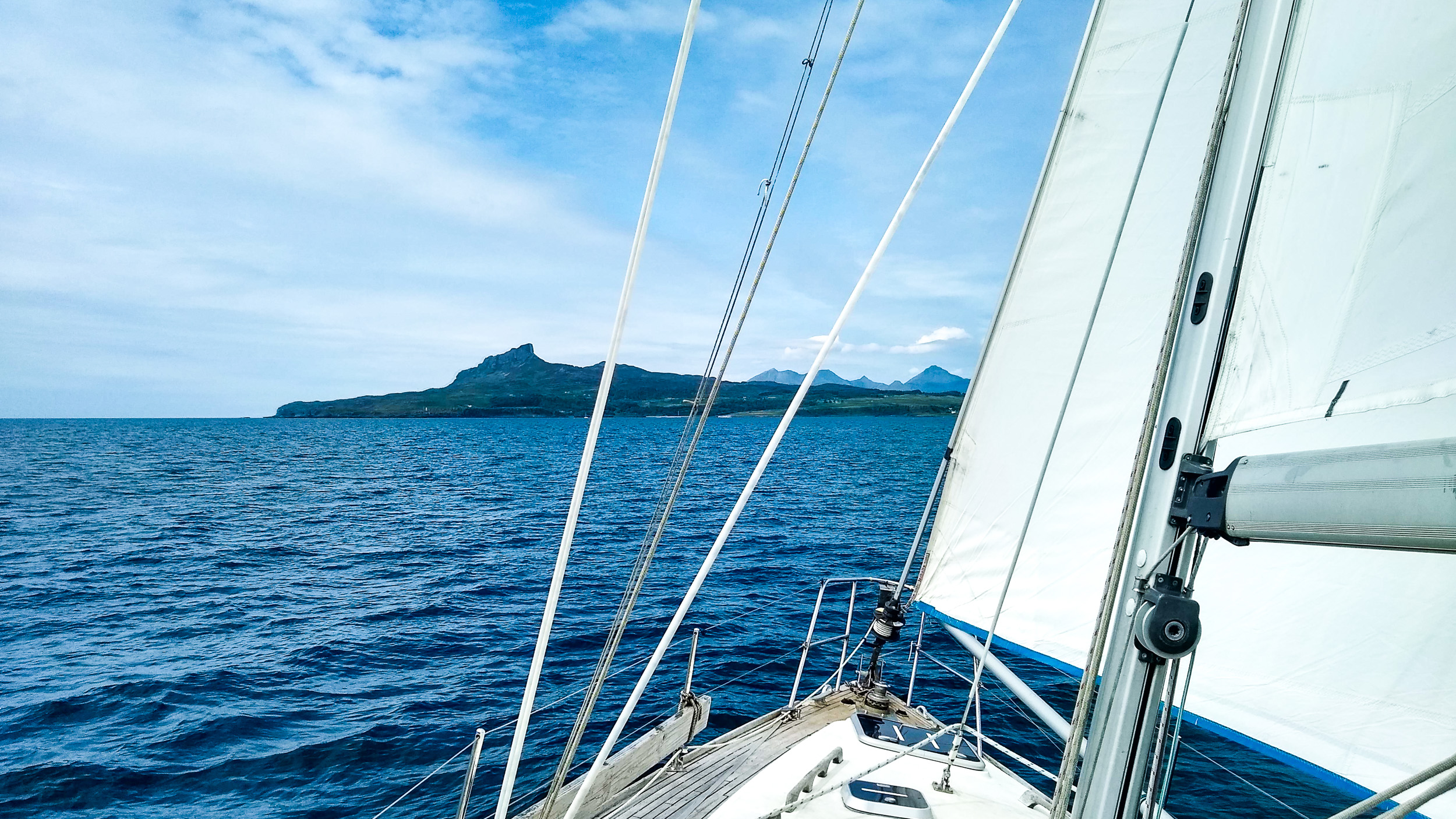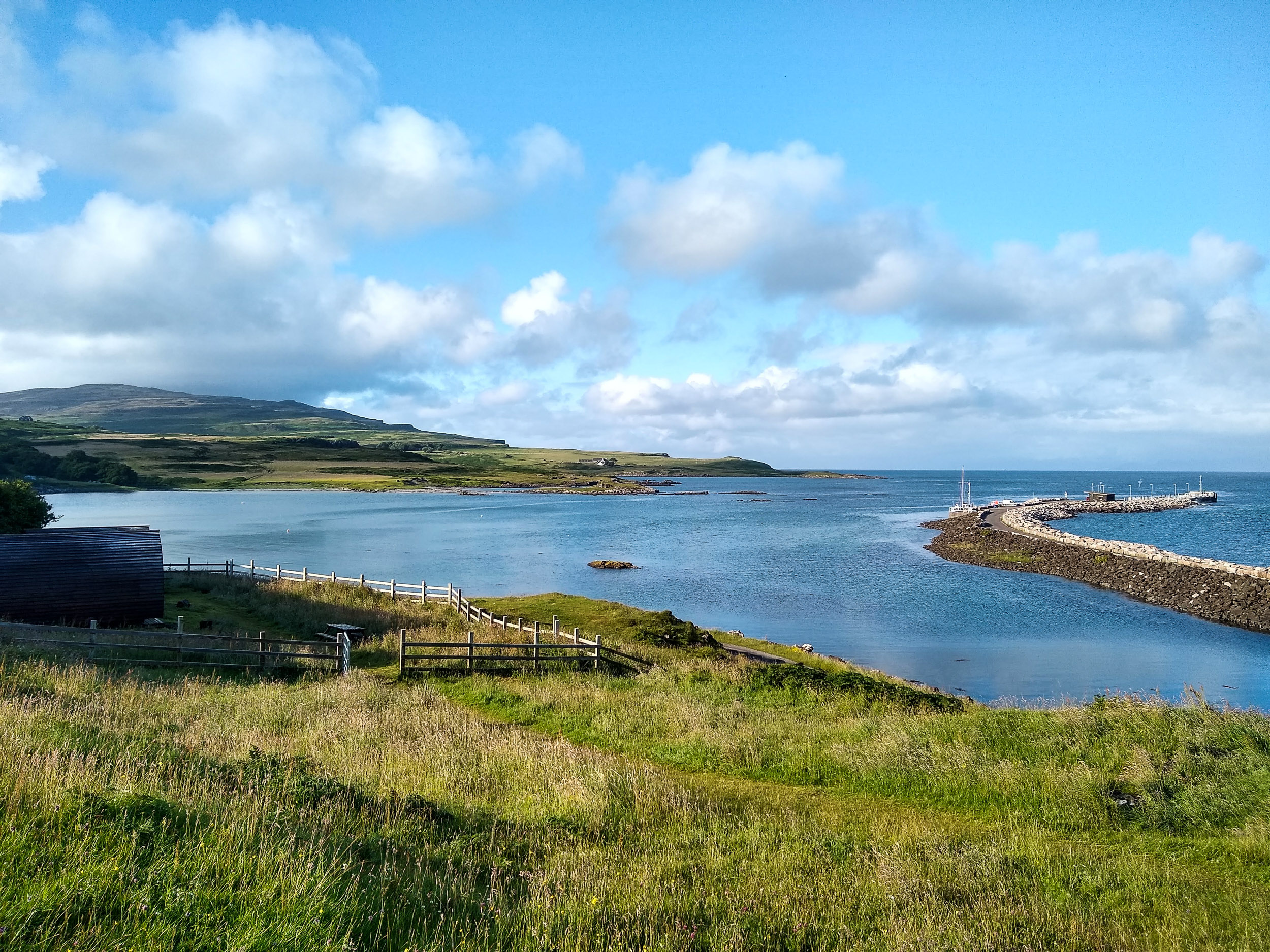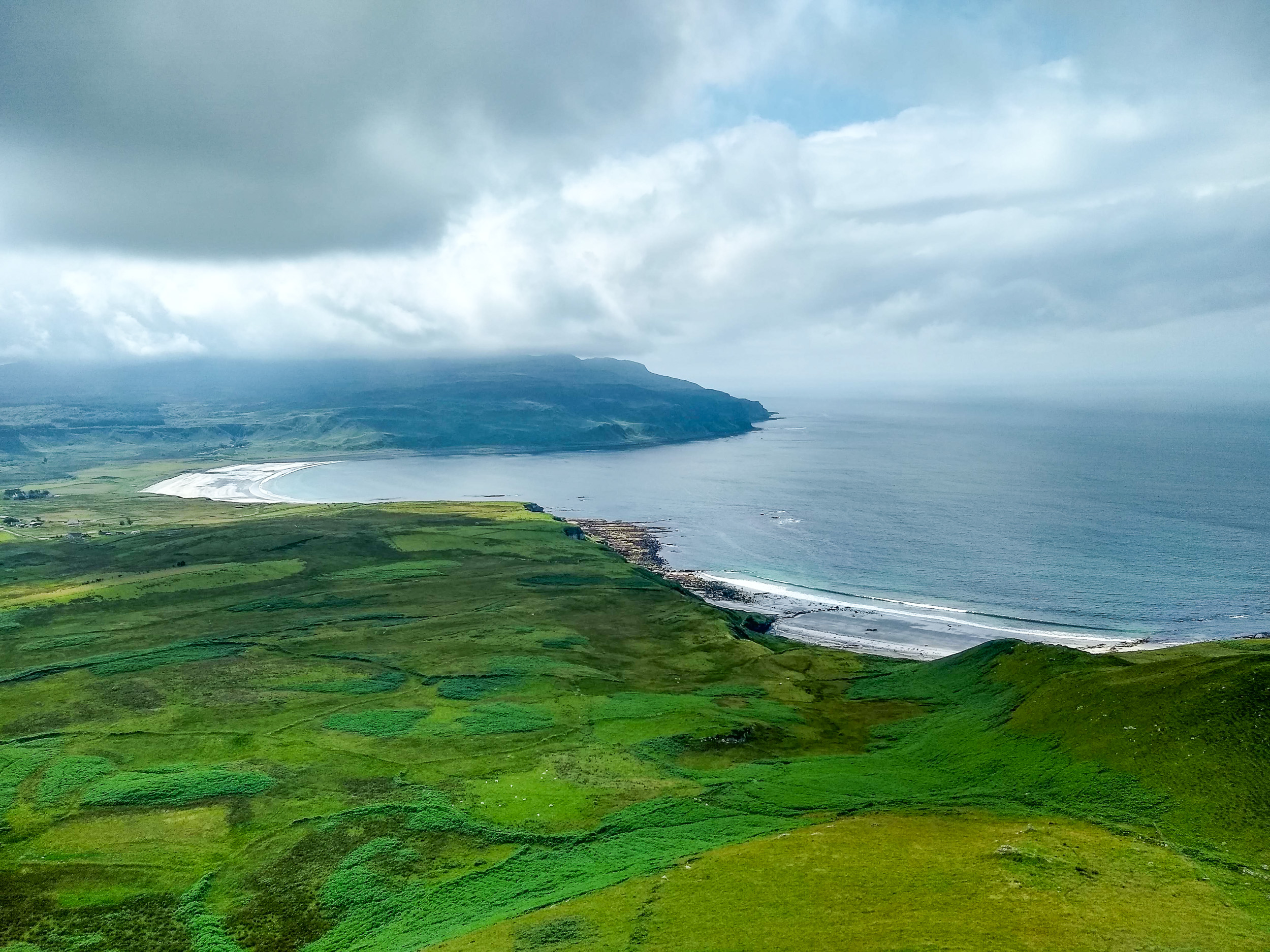For many people living in mainland societies, island life represents a unique picture of peaceful seclusion, freedom, and the romance of a rural idyll; yet throughout history the reality of island existence is one of hardship, deprivation and toil – the need to be self sufficient within the confines of limited land and scarce resources.
As the world struggles with Covid-19, many are questioning how best to survive long periods of isolation, but also looking towards new ways of doing things, more sustainable ways of living our lives. With their geographically enforced isolation, islands may provide answers to both these questions.

Sailing to Eigg – a very special island
‘Human Scale’
A global pandemic such as the one we are living through provides an opportunity for positive change – though it is yet to be seen whether the world can rise to the challenge! Pandemics have been linked to the degradation of ecosystems, unsustainable relationships with wildlife, and the pressures of Climate Change. On a small island, this can rapidly lead to livelihoods becoming unviable, something history has shown many times. And yet the same is true on a global level, only that the enormity of the situation is hard to grasp as a society, being so far beyond the human scale.
Human scale is instrumental in empowering communities to drive positive change. When we experience something directly as individuals, we are motivated to preserve or improve it. Beyond this human scale, ‘Out of sight, out of mind’ comes into play. Take waste, for example: on the mainland we ‘throw away’ our rubbish – it disappears like magic, only to re-emerge on beaches, great rafts of refuse for which no one feels accountable. On a small island, this would not be the case. If you were simply to discard your rubbish beside the path, the likelihood is that you’d encounter it again the next day.
In the same fashion, the Isle of Eigg in the inner Hebrides, might hold a solution to the Climate Crisis. Eigg has a fascinating history and is perhaps the best known example of an island in community ownership after a long and bitter struggle with a succession of private landlords. It is not connected to the national grid, and therefore energy is a critical and limited resource. In the old days power was provided by dirty diesel generators, but under community ownership, Eigg now has a network of renewable energy resources which provide for 95% of the islands needs. The reason this is possible however, is that energy use is strictly limited.

Galmisdale Pier, Isle of Eigg. A light here, either green or red according to the energy resources available, gives residents and visitors a clear indication of the island’s real time generation capacity and a reminder be conscious about their consumption.
During Sail Britain’s artists’ residency ‘The Life of Islands’, Maggie Fyffe, secretary of the Isle of Eigg Heritage Trust told how each household was limited to 5kW consumption, and a 10kW limit for businesses. This is the sustainable limit which the island’s infrastructure can supply. What’s more, there is a reconnection charge for tripping the switch! Everyone thinks about their usage as a result. If you want to boil an electric kettle, perhaps don’t do it at the same time as using the toaster. Such spikes in demand wreak havoc with infrastructure and lead to the unsustainable need for surplus capacity in mainstream networks. The carefully considered community consensus on Eigg results in limited renewables being able to meet nearly all the islands needs, something of which the islanders are rightly proud.
What then if we were able to adopt such a system on the mainland? Conscious consumerism coupled with sustainable levels of renewable electricity generation would be a leap forward in tackling the Climate Crisis. The challenge however is to do with the human scale: the effects of our actions are beyond our field of perception, our part in society infinitesimally small, that sufficient motivation to change is hard to find. The inertia of society is too great. Moreover such drastic curtailments of energy use might prove a tough political challenge with centralised systems of energy and government.
Those of us in lockdown have in some sense all become islanders. The bounds of our lives have been drastically curtailed. It is the most profound change in the freedoms of society that many of us have ever experienced. And yet for an islander, this probably wouldn’t be anything out of the ordinary. Getting supplies requires forward planning, some things may not be possible to get at all, and the fast pace of globalisation seems to have slowed. In place of the helter-skelter, we have more time to observe and to listen, to notice the progress towards the sun of the small shoots we planted in March, forgotten sachets of seeds which would probably have withered to dust were it not for the inward looking approach life has taken. Let’s keep hold of these little things and use the opportunity to reset our relationship with the natural world. If we can be conscious of our limits, we’ll all be in a better place when the storm passes.

The Singing Sands seen from the escarpment on Eigg
Oliver Beardon is a sailor and environmentalist and founder of Sail Britain